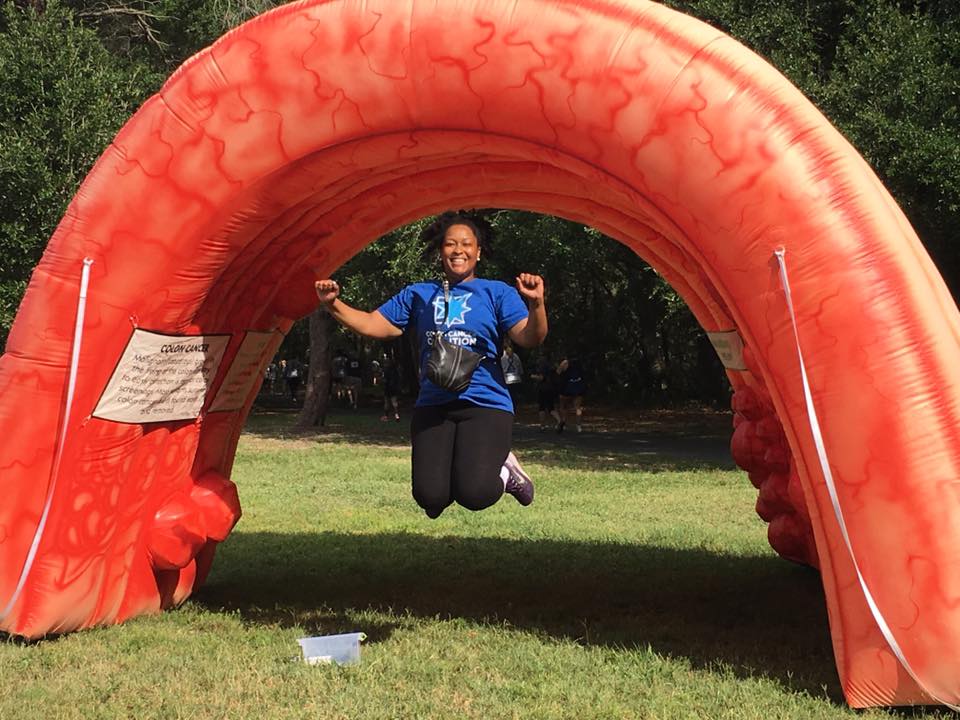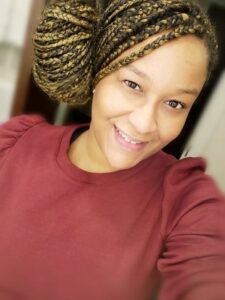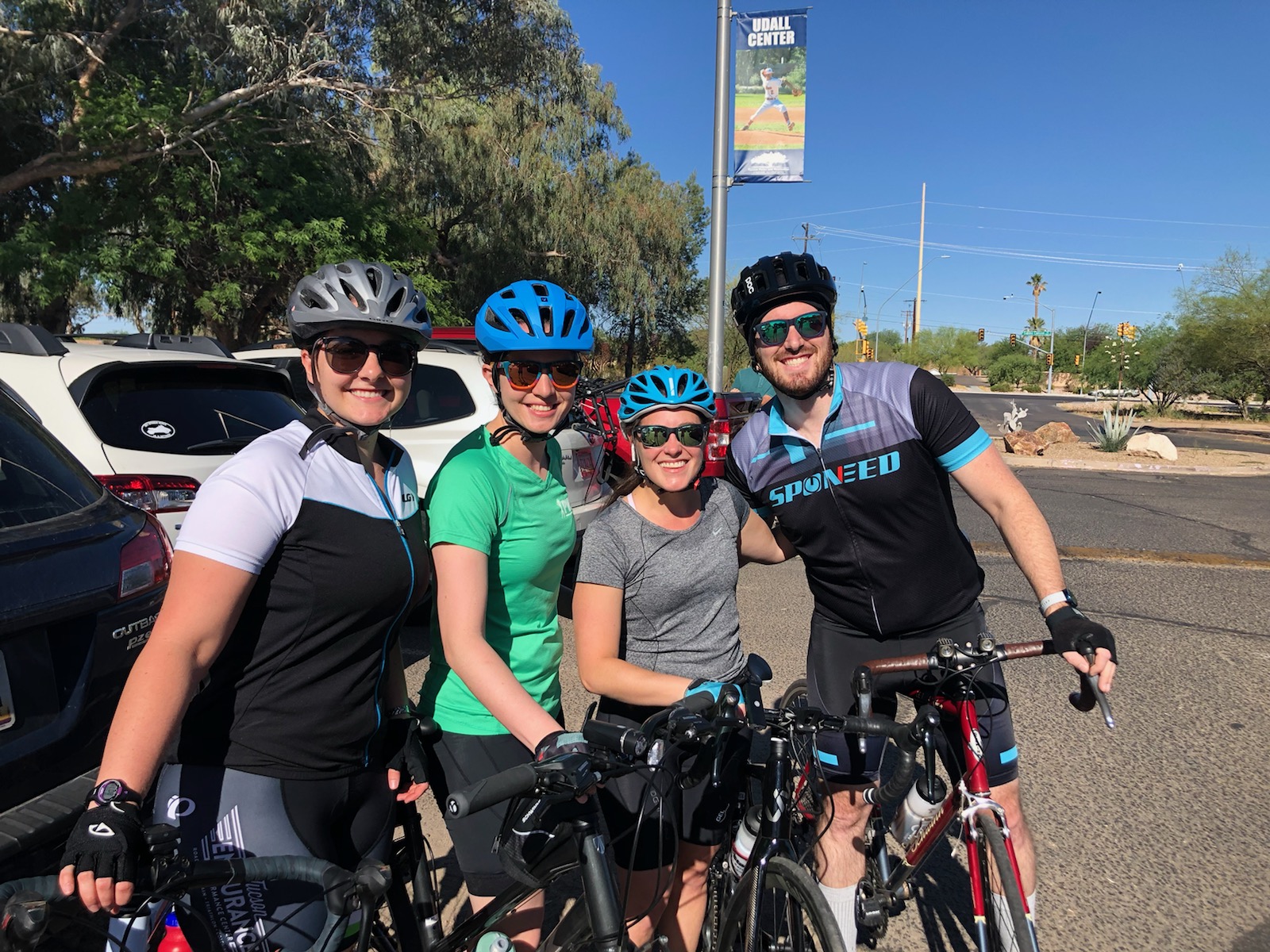
Ashley Johnson is president of National End-Of-Life Doula Alliance (NEDA), and founder of Loyal Hands, a consulting agency that works with families seeking care from End of Life Doulas. Her work has been featured in Instyle Magazine, Mic, and Forbes, and in 2022 she gave a talk at TedXWestshore on the future of mortality.
In addition to her work as an End of Life Doula, Ashley has been the Local Event Director for Get Your Rear in Gear – Orlando for the last nine years. Over these nine years, Ashley has created a dedicated space for everyone impacted by colorectal cancer in her community to come together, celebrate loved ones, and spread awareness for a disease that affects 1 in 24 Americans.
In honor of National End-Of-Life Doula Day, we asked Ashley a few questions about her work:
Q: How did you become an end-of-life doula?
My death care career was inspired by growing up in a low socio-economic neighborhood that lacked advocacy on how to deal with end-of-life practices. My interest in funeral service started as a child, I would read the Sunday obituaries instead of the comics.
I was motivated to become an end-of-life doula when my childhood friend was diagnosed with stage IV colon cancer at the age of 27. I was doing the task of an end-of-life doula for her without knowing it. Once she transitioned, I saw fit to provide others in need of education, service, and companionship and continue this journey. Everyone deserves ‘good death’ and families need proper closure.
Q: What is your main responsibility as an end-of-life doula?
This is such a loaded question. End of Life Doulas, or EOLDs also called Death Doulas or Death Midwives, enrich the dying experience for patients, family members and friends, while strengthening the relationship between medical (the doctors, nurses, social workers) and non-medical support (the family or caretakers).
We are trained professionals who provide assistance and guidance with holistic services to
individuals and their families during transformative life changes. A death doula’s work ranges from logistical planning for the time before, during, and after death; conducting rituals or comforting practices; helping the dying person reflect on their life and values; and explaining the bodily functions of dying to caregivers.
Death doulas work in conjunction with hospice programs to provide interpersonal, social, logistical, and spiritual guidance that complements the care they receive in hospice. Hospice care is regulated by Medicare rules, limiting the time staff is allowed to spend with patients and families. Death doulas also step into other areas where hospice may need help, such as:
- Advance Health Care Planning
- Practical Training for Family Caregivers
- Creating a Plan for Support at the Patient’s Time of Death
- Help with Planning Funeral and Memorial Services
- Companionship to Patients
- Needed Relief for Family Caregivers
- Grief Support
- Vigil presence for Actively Dying Patients
Q: End-of-life care is an emotional job. How do you care for yourself after your work is complete?
Self-care is important for everyone, but it can be especially crucial for individuals who have jobs that require significant emotional labor. Here are some of the ways I care for myself:
- Practicing Mindfulness: Engaging in mindfulness exercises, such as meditation or deep breathing.
- Seeking Support: Not being afraid to reach out for support when I need it. This can be from friends, family, or a therapist or counselor.
- Engaging in Hobbies or Activities You Enjoy: Doing things I love outside of work can help me relax and recharge emotionally.
- Practicing Self-Compassion: Being kind to myself and practicing self-compassion. Acknowledge my emotions and experiences without judgment and treating myself with kindness and understanding.
Q: You’ve been an LED with the CCC for some time, and run a very successful event in Orlando- how did you become involved in colorectal cancer awareness, and what drives you?
Driven by a heart-wrenching loss, I found my purpose as an advocate for colon cancer awareness. When my childhood best friend passed away from this devastating disease, I was determined to make a difference. I refused to let limited resources or education be the sole reasons why people lose their lives to colon cancer.
With unwavering passion and a deep commitment to spreading awareness, I am dedicated to advocating for early detection, access to resources, and education to save lives. This same passion carries into my work as an end-of-life doula, where I provide compassionate support and advocacy for individuals and families facing the end-of-life journey. I am committed to ensuring that everyone has the opportunity to face the end of life with dignity, knowledge, and support.
The fellowship aspect of my drive is rooted in my belief that shared experiences, such as participating in a 5K run, can bring people closer together. I see Get Your Rear in Gear – Orlando as a platform for individuals to connect, build meaningful relationships, and establish a sense of camaraderie. I am motivated by the idea of creating an inclusive environment where participants can socialize, support each other, and form lasting connections.
The education component of my drive is centered around my commitment to providing valuable information and resources to participants. I see the 5K event as an opportunity to educate and empower individuals with knowledge related to health, fitness, and wellness. I plan to incorporate workshops, seminars, or informational materials that can offer practical guidance and inspire participants to make positive changes in their lives.
The resources aspect of my drive involves my desire to provide access to opportunities or services that can benefit participants. This includes collaborating with local businesses and organizations to offer discounts, promotions, or other incentives. I also aim to raise funds or gather resources to support causes or charities that align with my vision of creating a hub for fellowship, education, and resources. My vision for the event reflects my unwavering commitment to building a community that fosters fellowship, lifelong learning, and empowerment.
Losing a loved one to cancer is a heart-wrenching experience that leaves a void that is hard to fill. For me, it was the passing of my childhood best friend to colon cancer that shook me to the core. Her untimely death left me devastated and grappling with grief. However, amidst the pain and sorrow, I found solace and purpose in taking action.
Right after her funeral, I pulled into a 7/11 and googled colon cancer organizations that I could get involved with. The Colon Cancer Coalition popped up and their mission, vision and values aligned with me, and I called and left a voicemail.
My best friend’s battle with colon cancer was a wake-up call for me. It made me realize the urgent need for increased awareness, support, and advocacy for those affected by this disease. Being part of the Coalition has been a source of comfort and purpose for me. It has given me a platform to channel my grief into positive action. I have been actively involved in spreading awareness about the importance of early detection and screening for colon cancer through community events, educational workshops, and social media campaigns.
Q: What’s something you’d like people to know about end-of-life doulas?
End-of-life doulas are like “life’s co-pilots,” not the “grim reapers in disguise.” We’re here to provide comfort, support, and companionship. So, no need to worry, we won’t be donning a black cloak or wielding a scythe anytime soon. We’re just compassionate humans helping you navigate life’s final chapter with care and understanding.
We offer a non judgmental, compassionate presence and provide comfort, guidance, and companionship during this profound and sensitive time.
Death doulas play a valuable role in providing holistic and compassionate care and support during the end-of-life process, honoring the wishes, beliefs, and preferences of the dying person and their loved ones.
Putting the HUMAN back into HUMANity.
To learn more about Ashley and her work, watch her TEDxWestshore talk below:
Join Ashley for the 9th annual Get Your Rear in Gear – Orlando on May 21, 2023! Colorectal cancer survivors and patients register for free.
GET YOUR REAR IN GEAR - ORLANDO SIGNS & SYMPTOMS GET SCREENED


